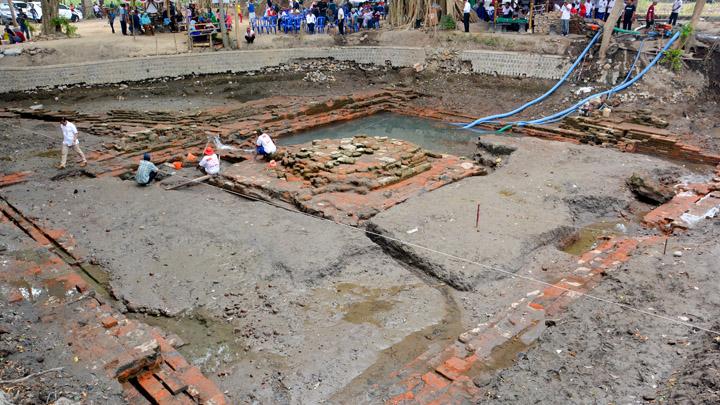
TEMPO.CO, Jakarta,
School First, Marriage Later
South Sulawesi teenagers are campaigning against child marriage with the support of the regional government and the APIK Legal Aid Society.
AT first, Hasmita Nurzakia, a 12th grader at State High School 1 in Gowa, South Sulawesi, may seem like any other teenager who enjoys surfing the Internet, posting on Instagram and chatting on Facebook. Occasionally, she would also spend time chatting with her friends during recess and after school, carrying the special mission to prevent child marriage in all of these interactions.
Because Hasmita is well aware that the subject tends to be quite heavy for people her age, she never approaches the topic directly. Instead, she creates compelling, fact-based narratives to spark curiosity.
"The campaign against child marriage is much more difficult than any homework," said the 17-year-old. "Homework can be done in a few hours, but the campaign seems to have no end."
She began speaking out on child protection in 2015, when the South Sulawesi women’s empowerment and child protection office (PPPA) inducted her into the Children’s Forum. Hasmita, who was in ninth grade, was considered after winning a caricature competition organized by the PPPA office. "I didn’t turn them down because I wanted to learn about children’s rights," she said.
Hasmita’s parents fully support her activities, including the monthly discussions at the South Sulawesi PPPA office. In these discussions, mentors from the government and non-profits train Hasmita to become a spokesperson for the protection of children’s rights.
This Children’s Forum was the forerunner to the campaign to put an end to child marriage. Through the forum, three groups of 20 teens were formed in three regions: the city of Makassar and the regencies of Pangkep and Gowa, all in South Sulawesi. In Gowa, where Hasmita lives, the campaign team is called the Gowa Peer Group Against Child Marriage (Kesatria), while the campaign team in Makassar is called the Group of Teenagers for the Prevention of Child Marriage (KRP2A). "We focus on campaigning in our neighborhoods and schools," Hasmita explained.
At school, the Kesatria teens have pioneered a new counseling and guidance (BK) body called the Peer Approach (Pedas). While guidance counselors are usually teachers, Pedas is run by students such as Hasmita. Other students come to them with problems, including those who plan to marry at a young age. "They’ve become more open, maybe because we’re the same age."
The Children’s Forum and its activities were the idea of the Women’s Legal Aid Society (LBH APIK) in Makassar, in partnership with the local PPPA office. The initiative began when LBH APIK discovered a high prevalence of child marriage in South Sulawesi.
Emma Rahmayanti, who oversees LBH APIK Makassar’s programs, says there was a 6.7-percent rate of child marriage involving children under 15 in South Sulawesi last year, higher than the national average of 2.46 percent. Meanwhile, marriage among teenagers between the age of 15 and 18 was at 13.86 percent, also higher than the national average of 10.8 percent.
These high rates place South Sulawesi as a province with the fourth-highest child marriage rate in Indonesia behind West Sulawesi, Central Sulawesi and Papua. "Most child marriages take place on the outskirts of large cities and on small islands in South Sulawesi," said Emma.
Read more inspiring Outreach stories in Tempo English Weekly Magazine























